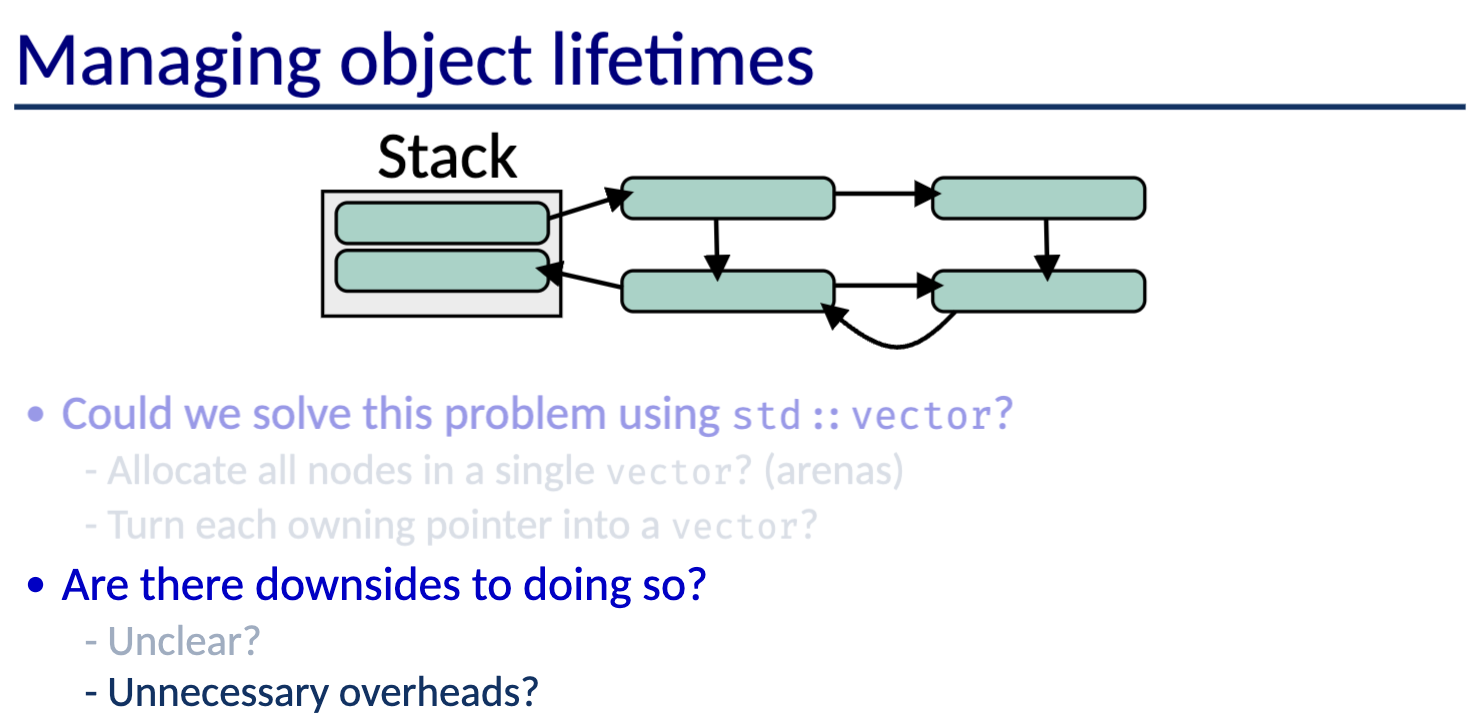intro
cpp was complicated
- pointers
- nontrivial types
- many proposed rules
- rule-of-3
- pass by value
modern cpp for
- simplicity
- safety
- syntactic sugar
managing object lifetimes
stack - automatic memory management
Widget w{0, "fritter"}heap - manual management, harder in complex
Widget* w = new Widget{0, "fritter"}
2 types of ownership in modern c++
- unique ownership
std::unique_ptr<T>- automated, preferred, and deleted when out scope
- shared ownership
std::shared_ptr<T>- counts # of owners
few rules:
- every object generally has 1 owner
- no outliving owning ptr
- non-owning ptr can be unlimited
functions passing
signature
- immutable pass-by-ref
foo(const X&) - mutable pass-by-ref
foo(X&) - pass-by-value
foo(X)
general resource management
memory management - subset of resource management
- proper acquire and release
- no double make, double free, use after free
- other resources to manage (files, locks, dbs)
problems pervasive - general solutions across languages - Resource acquisition is Initialization (RAII)
RAII relation to managing complexity?
- explicit resource design
- automatic
- removes temporal coupling (use after free)
- promotes composition
operating on collections
- iterating
iterating painful w/ basic for-loops
for (unsigned i = 0; e = 4; i <= e; ++i)for (auto number: numbers) - passing collections
- prefer
const std::vector<T>&overconst std::vector<T>
- prefer
new vocab types
vocab types - commonly used types regularly appear
- better communication
- solve faster
- less bugs
example:
std::spanstd::string_viewstd::optionalranges
λ lambdas
bool hasGreaterThan3 = std::ranges(numbers, [](auto number) { return number > 3; })over
bool hasGreaterThan3 = false;
for (auto number: numbers) {
if (number > 3) {
hasGreaterThan3 = true;
}
}lambda structure
[local1, local2] (auto arg1, auto arg2) -> returnType {
}views and ranges
auto results = ints
| std::views::filter(isEven)
| std::views::transform(square)
| std:::ranges::to<vector>();- lazy iterator - efficient
filter, map, map-ish
exception
can also use exception, but not new